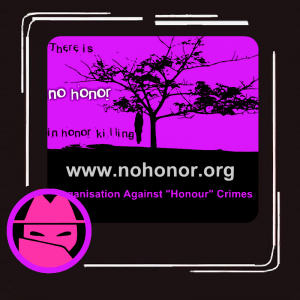Saudi FM: Court to review sentence
RIYADH, Saudi Arabia (AP) — A Saudi court will review the case of a teenage gang rape victim sentenced to jail and flogging after she was convicted of violating the country’s strict sex segregation laws, the foreign minister said Tuesday.
Saudi Arabia Foreign Minister Saud al-Faisal, center, attended the Mideast peace conference Tuesday.
The remarks by Prince Saud al-Faisal, made in the United States and carried by the official Saudi Press Agency, were the latest in response to a salvo of international condemnation of Saudi judicial authorities’ handling of the case.
It was also a sharp turn from a statement Saturday in which the Saudi Justice Ministry condemned the 19-year-old woman as an adulteress who had allegedly confessed to cheating on her husband. She was raped by seven men and then sentenced to six months prison and 200 lashes.
In the statement, the ministry said the flogging sentence would be carried out and condemned foreign interference. The statement likely sought to ease international outrage over the case by discrediting the woman.
On Tuesday, SPA quoted al-Faisal as saying “the Saudi judiciary will review the case.”
But al-Faisal was also on the defensive and maintained the case was being used against Saudi authorities.
“What is outraging about this case is that it is being used against the Saudi government and people,” he said, speaking in Annapolis, Maryland, where he was attending the U.S.-hosted Mideast peace conference.
Known only as the “Girl from Qatif,” the victim said she was a newlywed who was meeting a high school friend in his car to retrieve a picture of herself from him when the attack occurred in the eastern city of Qatif in 2006.
While she was in the car, two men got into the vehicle and drove them to a secluded area where others waited, and then she was raped.
The ministry’s account Saturday alleged that the woman and her lover met in his car for a tryst “in a dark place where they stayed for a while.”
The girl was initially sentenced to prison and 90 lashes for being alone with a man not related to her. An appeals court then doubled the lashes to 200.
The increase in sentence received heavy coverage in the international media and prompted expressions of astonishment from the U.S. government. Canada called it “barbaric.”
Under Saudi Arabia’s strict interpretation of Islamic Sharia law, women are not allowed in public in the company of men other than their male relatives. Also, women in Saudi Arabia are often sentenced to flogging and even death for adultery and other crimes.
The seven men convicted of gang raping the woman were given prison sentences of two to nine years.
The case has sparked rare domestic debate about the Saudi legal system, which gives judges wide discretion in sentencing and where rules of evidence are shaky and sometimes no lawyers are present.
Justice in Saudi Arabia is administered by a system of religious courts and judges appointed by the king on the recommendation of the Supreme Judicial Council. Those courts and judges have complete discretion to set sentences, except in cases where Sharia outlines a punishment, such as capital crimes.
That means that no two judges would likely hand down the same sentence for similar crimes. A rapist, for instance, could receive anywhere from a light or no sentence to death, depending on the judge’s discretion.
|
What is an honour killing? |
|
An honour killing is a murder in the name of honour. If a brother murders his sister to restore family honour, it is an honour killing. According to activists, the most common reasons for honour killings are as the victim:
Human rights activists believe that 100,000 honour killings are carried out every year, most of which are not reported to the authorities and some are even deliberately covered up by the authorities themselves, for example because the perpetrators are good friends with local policemen, officials or politicians. Violence against girls and women remains a serious problem in Pakistan, India, Afghanistan, Iraq, Syria, Iran, Serbia and Turkey. |
Latest posts
-
Honor Killing in Viry-Châtillon, France: Brothers Beat Their Sister’s Ex-Boyfriend to Death
-
Honor Killing in Ahvaz, Iran: Young woman murdered in front of her husband by her brothers
-
Honor Killing in Abadan, Iran: Daughter Strangled by Her Father
-
Honor Killing in Punjab, Pakistan: Maria Bibi Murdered by Her Father and Brothers
-
Femicide in Mierlo, Netherlands: Syrian woman stabbed to death
-
Domestic Violence Leads to Suicide in Saqez, Iran: Halaleh Eliasi’s Sad Story
-
15-year-old Iranian girl likely murdered because she was in love with a boy
-
Iranian Man Murders 12 As Revenge For Honor Killing Of Sister
-
Honour killing in Dera Ismail Khan, Pakistan: Two brothers murdered their sister
-
Honour Killing in Chennai, India: Young Dalit Stabbed to Death





















































